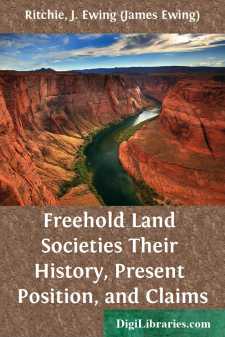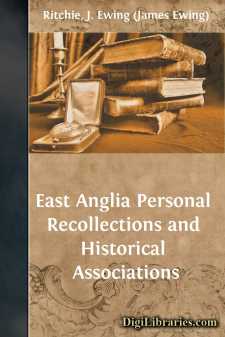Categories
- Antiques & Collectibles 13
- Architecture 36
- Art 48
- Bibles 22
- Biography & Autobiography 813
- Body, Mind & Spirit 142
- Business & Economics 28
- Children's Books 15
- Children's Fiction 12
- Computers 4
- Cooking 94
- Crafts & Hobbies 4
- Drama 346
- Education 46
- Family & Relationships 57
- Fiction 11828
- Games 19
- Gardening 17
- Health & Fitness 34
- History 1377
- House & Home 1
- Humor 147
- Juvenile Fiction 1873
- Juvenile Nonfiction 202
- Language Arts & Disciplines 88
- Law 16
- Literary Collections 686
- Literary Criticism 179
- Mathematics 13
- Medical 41
- Music 40
- Nature 179
- Non-Classifiable 1768
- Performing Arts 7
- Periodicals 1453
- Philosophy 64
- Photography 2
- Poetry 896
- Political Science 203
- Psychology 42
- Reference 154
- Religion 513
- Science 126
- Self-Help 84
- Social Science 81
- Sports & Recreation 34
- Study Aids 3
- Technology & Engineering 59
- Transportation 23
- Travel 463
- True Crime 29
Freehold Land Societies Their History, Present Position, and Claims
Description:
Excerpt
“The laws of this country recognise nothing more sacred than the Forty-shilling Freehold Franchise; and a vote for the county obtained by these means is both constitutional and laudable.”—Lord Chief-Justice Tindal.
“What he had heard from hon. members told him nothing more than this, that the working population could easily, under the old system, acquire the right of voting; and that every man who owned forty shillings a-year could entitle himself to vote. Were they to be told that the people of England were so degraded, so besotted, so dead to all sense of their true interests, that they could make no efforts to possess themselves of the franchise?”—Mr. Disraeli.
LONDON:
WILLIAM TWEEDIE, 337, STRAND.
price twopence.
ADVERTISEMENT.
The following pages are reprinted from the “Weekly News and Chronicle”—the only Paper that aims to be the organ of the Freehold Land Movement. They are now published in the hope that they may win for that movement a wider support and a heartier sympathy than it has already secured. It is a child—it will be a giant ere long.
3, Clifford’s Inn.
April 1853.
The Freehold Land Movement is the great fact of the age. We propose to consider it in its origin, its present position as a means of investment for the middle and working-classes, and in its political and social and moral bearings. We propose to tell what it has done, and what it seeks to do. Born of a working-man, it especially aims at the elevation of working-men. It comes to them, and offers them independence, wealth, and political power. Conceived in a provincial town, its ramifications now extend through the land. It demands no mean place in the consideration of the influences now at work for realising a future brighter and better than the past. The philosopher, the political economist, and the philanthropist must alike, then, deem it worthy of serious regard. On the part of a people, the absence of recklessness and waste is a great good; but the formation of industrial and economical habits is a still greater good. From such plain, unpoetical traits of national character are born the arts and the graces, and all that is civilised and refined in life. A rich people is not less virtuous, and is certainly far happier, than a poor one. Therefore we say, let the Freehold Movement have wide support, for it is a schoolmaster, teaching the path leading the people of this country to wealth, and to the power and independence which wealth alone can give. Thus much by way of introduction. That our readers may fully understand the subject, we shall begin at the beginning, and explain.
I.—THE CONSTITUTION OF A FREEHOLD LAND SOCIETY.
Some time back the Times asked scornfully, as Pilate of old did concerning truth, what was a Freehold Land Society. We reply, viewed in a business light, it is simply a society for the purchase of land. It involves two commercial principles well understood—that purchasers should buy in the cheapest market, and that societies can do what individuals cannot. Till the movement originated, the purchaser of a small plot of ground had to pay in lawyer’s expenses connected with the purchase frequently as much as he paid for the plot itself. A society buys a large piece of ground. They make roads through it; they drain it; they turn it into valuable building-land; they thus raise its value; and they divide it amongst their members, not at the price at which each allotment is worth, but at the price which each allotment has cost. Being also registered under the Friendly Societies Act, the conveyance costs the purchaser generally from 25s....









